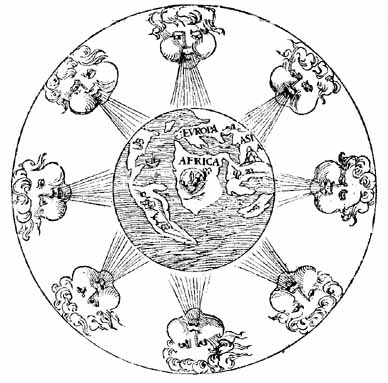AN INTERNATIONAL CONFERENCE ON GLOBAL STS NEW DIRECTIONS IN SOCIAL, CULTURAL, AND HISTORICAL STUDIES OF SCIENCE AND TECHNOLOGY
AN INTERNATIONAL CONFERENCE ON GLOBAL STS
NEW DIRECTIONS IN SOCIAL, CULTURAL, AND
HISTORICAL STUDIES OF SCIENCE AND TECHNOLOGY
Nanyang Technological University, Singapore 14-15 March 2014
Call for Papers
In celebration of the 10th Anniversary of the School of Humanities and
Social Sciences, Nanyang Technological University, the Humanities,
Science, and Society Research Cluster (HSS@HSS) will hold an international
conference on Global STS: New Directions in Social, Cultural, and
Historical Studies of Science and Technology. For the past forty years,
the field of Science and Technology Studies (STS) has grown significantly
to contribute to our understanding of how science and technology interact
with society. Numerous concepts, frameworks, and theories have been
developed by STS scholars but only a few touches upon transnational
dimensions of scientific production and technological development. As the
production system of science and technology has expanded beyond
nation-state borders and implications and repercussions of
technoscientific risk rapidly spread at the global scale, the proposed
mini conference is meant to take STS into new frontiers where the global
dimension of science and technology that increasingly shapes the future of
society in the 21st century is critically examined. Can we extend social
constructivism to explain the co-production of technology and society at
the global scale? How have transnational networks of scientific systems
transformed epistemological contents of science? Can the notion of
technological politics be applied universally in diverse political regimes
across the globe? In other words, can we have a Global STS? These are the
questions raised in the conference.
Objectives
The main purpose of this conference is to bring in young and senior
researchers from all over the world, but more specifically Asia, to share
and discuss new ideas, concepts, and methods in studying science and
technology in the global context. The conference aims to provide a venue
for an interdisciplinary interaction between sociologists, historians,
anthropologist, philosophers, and political scientists to examine how
precisely globalization changes the structures and cultures of
technoscientific production and how transnational networks of
technoscience produce far-reaching implications on the globalized society
in terms of the application and commercialization of scientific knowledge
and sociotechnical systems. As today's world is marked by the rise of Asia
as a new center of technoscience production, the conference invites STS
researchers to probe the future development of STS looking into Asia's
influences on global technoscientific enterprises in the 21st century. As
an academic event, the proposed conference seeks to extend the existing
STS scholarship to new levels to unpack science-technology-society
relations in a more complex way by cultivating alternative approaches from
different theoretical, methodological, and empirical grounds. The primary
objective of the workshop is to set a new agenda and direction of the STS
scholarship, taking into account multi-layered analysis of culture and
structure that mark the global contestation of technoscience.
Conference Format and Outputs
Well established scholars as well as junior researchers are invited to
submit their abstract. The conference is organized around five parallel
sessions each with specific conceptual approach. Topics of interest
include, but not limited to:
• Transnational Technoscience
• Sustainability and Global Development
• Risk and Disaster
• New Media and Game Studies
• Cross-border Infrastructures
• Gender and Technoscience
• Future Energy
• Health and Biomedicine
• Nanotechnology and New materials
• Governance and Institutions
Selected conference papers will be collected and published in an edited
volume or a special issue for international circulation.
Keynote Speaker
Wiebe E. Bijker is professor of Technology & Society at the University of
Maastricht. Professor Bijker was trained as an engineer in applied physics
(Technical University of Delft), studied philosophy (University of
Groningen), and holds a PhD in the sociology and history of technology
(University of Twente). Professor Bijker is a prominent STS scholar who
pioneered works in the sociology of technology. He is the author of “Of
bicycles, Bakelites, and Bulbs: Toward a Theory of Sociotechnical Change
(MIT, 1995) and a co-editor of STS influential books such as “The Social
Construction of Technological Systems: New Directions in the Sociology and
History of Technology” (MIT Press, 1987), “Shaping Technology / Building
Society. Studies in Sociotechnical Change (MIT Press, 1992), and “Paradox
of Scientific Authority: the Role of Scientific Advice in Democracies”
(MIT Press, 2009). Professor Bijker is former president of the Society for
Social Studies of Science and a recipient of the 2012 Leonardo da Vince
Medal awarded by the Society for the History of Technology.
Accommodation and Travel Subsidies
All participants will be provided with accommodation at Nanyang Executive
Center. Partial travel subsidies are offered to graduate students and
participants from less developed economies. Please note that only one
person of co-presented papers is to be accommodated.
Submission and Deadline
Please send an abstract of 300 words to STSConference@ntu.edu.sg. Included
in the abstract are a title, participant name(s), affiliation, and 4
keywords. The submission deadline is 15 January 2014. Accepted abstracts
will be notified by early February.
For further information, please check the conference website at
http://blogs.ntu.edu.sg/GlobalSTS/

